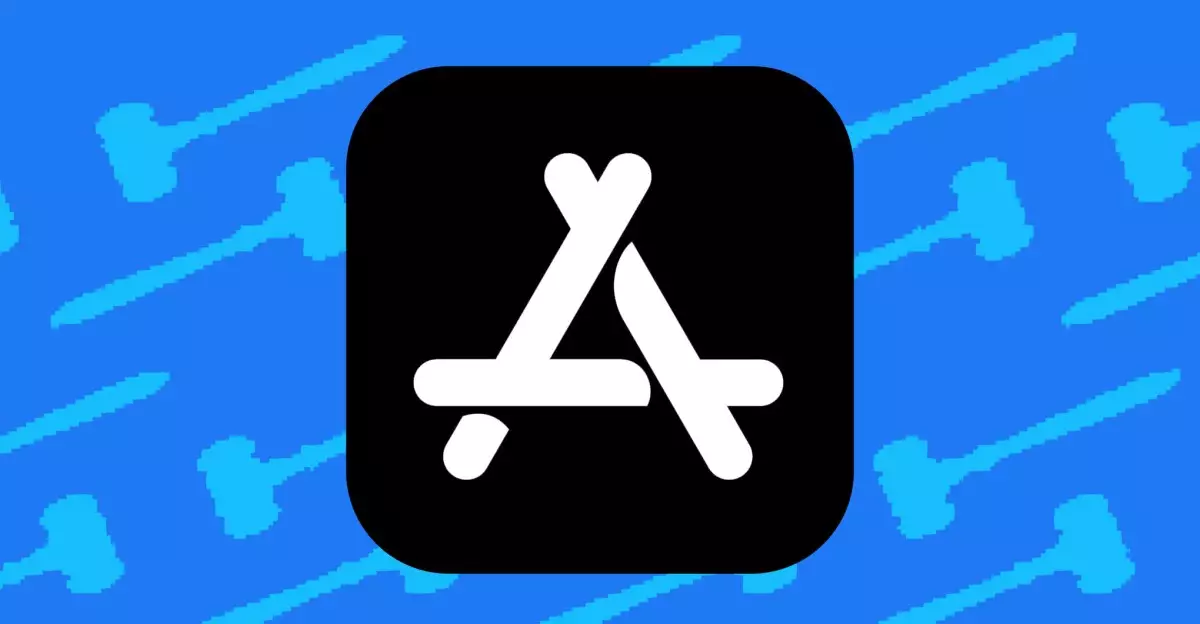The ongoing legal confrontation between Epic Games and Apple represents not just a battle over Fortnite’s availability but a broader struggle over app distribution practices and digital marketplace fairness. Epic’s recent legal maneuvers highlight a disconcerting pattern of behavior by Apple that could have significant implications for developers across the globe. As Epic seeks to reintegrate its flagship game into the App Store, it raises questions surrounding corporate accountability and consumer rights.
The Allegations of Contempt
Epic’s confrontation with Apple escalates as it accuses the tech giant of contempt following a previous court ruling issued by District Judge Yvonne Gonzalez Rogers. Epic asserts that Apple has failed to comply with a directive designed to curb its arbitrary rejection of apps based on their use of external payment systems. The gravity of this allegation is magnified by the fact that it stems from a situation already fraught with tension and complexity.
In a recent court filing, Epic formally requests the judge to compel Apple to review and approve its pending Fortnite submission in alignment with existing App Store guidelines. This request is grounded in a frustrating scenario where Epic claims that Apple has unnecessarily delayed the approval process, alleging that the tech company is retaliating against them due to their ongoing legal tussle. Such accusations paint a troubling picture of a monopolistic entity wielding its power to suffocate competition and dissuade dissent.
The Rollercoaster of Submissions
Epic’s experience with the App Store has become akin to a frustrating rollercoaster ride. After Judge Gonzalez Rogers issued her April ruling, there was a glimmer of hope for Fortnite’s return. Epic submitted the game not once, but twice, trying to align its product with Apple’s seemingly ever-shifting standards. However, rather than a triumphant return to the App Store, Epic faced the disappearance of Fortnite from the EU App Store — a baffling outcome that suggests Apple’s influence stretches beyond mere compliance with court orders.
Apple explained that it requested a resubmission of the app without the integration of the US storefront to protect Fortnite’s availability in other regions. Yet this request introduces a conundrum; Epic argues that complying would necessitate multiple app versions, inherently violating Apple’s own guidelines. The irony is palpable: Apple’s insistence on strict submission criteria may paradoxically hinder compliance with its guidelines.
The Implications of Apple’s Delays
Epic’s claims of Apple’s retaliatory tactics raise profound ethical questions about the power imbalance inherent in app distribution. This situation transcends the personal grievances of two companies; it poses larger issues concerning developer autonomy and the reach of corporate influence. If Apple’s alleged practices are indeed punitive, the ramifications could extend the conflict into a wider discourse about fair play in digital markets.
The legal entanglements are compounded by a persistent atmosphere of mistrust between the two companies. Apple’s circuits of bureaucracy appear deliberately designed to stifle competition rather than foster innovation. This has sent ripples throughout the developer community, with many small developers watching closely to see how this landmark case unfolds. Should Apple be found in contempt again, it could pave the way for a reassessment of its app store policies that may resonate far beyond just Epic Games.
The Supreme Court’s Role in Setting Precedents
With Judge Gonzalez Rogers already having expressed her annoyance with Apple during past rulings, there is a palpable sense that the upcoming decision could set powerful precedents within the realm of app distribution. Legal scholars may scrutinize this case for years to come, as it captures the essence of a critical moment in the evolution of how digital marketplaces operate. If held accountable, Apple could face significant operational shifts, possibly loosening its grasp on app approval in a way that promotes a healthier ecosystem for developers.
In the end, Epic’s fight is not merely a legal quest for Fortnite; it’s a battle for a more equitable future in the digital landscape. The outcome may not only redefine the relationship between major tech companies and game developers but may also embolden the voices of developers who seek fair treatment in an industry increasingly dominated by a few powerful players. This legal theater could prove pivotal, leading to necessary changes that benefit both developers and consumers alike.


Leave a Reply